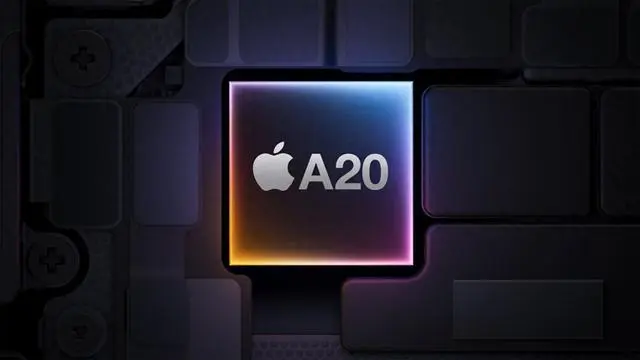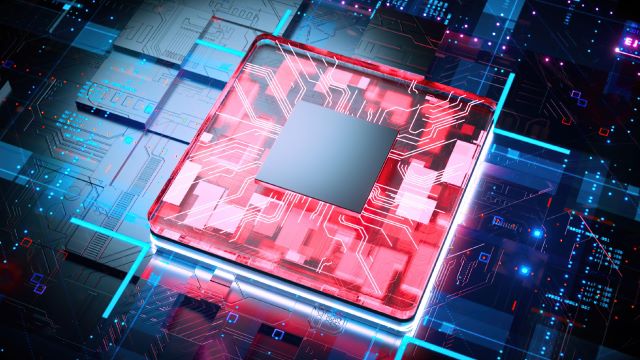Welcome Here Shenzhen Mingjiada Electronics Co., Ltd.

sales@hkmjd.com

sales@hkmjd.com

Service Telephone:86-755-83294757
 Latest Information
Latest Information Home
/Industry Information
/
Home
/Industry Information
/
Reports indicate that Apple's A20 chip uses TSMC's 2nm process and new packaging technology
On 5 June, despite the fact that the iPhone 17 series is still three months away from release, rumours about next years iPhone 18 series have already begun to surface. Apple analyst Jeff Pu revealed in a research report published this week by GF Secur…
On 5 June, despite the fact that the iPhone 17 series is still three months away from release, rumours about next year's iPhone 18 series have already begun to surface. Apple analyst Jeff Pu revealed in a research report published this week by GF Securities, an equity research firm, that the iPhone 18 Pro, iPhone 18 Pro Max, and the rumoured iPhone 18 Fold are expected to feature Apple's A20 chip, which will have significant design changes compared to the A18 and the upcoming A19 chips.

First, Jeff Pu reiterated that the A20 chip will be manufactured using TSMC's 2-nanometre process. The A18 Pro chip currently used in the iPhone 16 Pro series is based on TSMC's second-generation 3-nanometre process, while the A19 Pro chip expected to be used in the iPhone 17 Pro series will utilise the third-generation 3-nanometre process. The transition from 3-nanometre to 2-nanometre will allow each chip to accommodate more transistors, thereby enhancing performance. According to previous reports, the A20 chip's performance is expected to improve by up to 15% compared to the A19 chip, with power consumption reduced by up to 30%.
Here is an overview of current and future iPhone chips:
A17 Pro chip: 3-nanometre (TSMC's first-generation 3-nanometre process N3B)
A18 chip: 3-nanometre (TSMC's second-generation 3-nanometre process N3E)
A19 chip: 3 nanometres (TSMC's third-generation 3-nanometre process N3P)
A20 chip: 2 nanometres (TSMC's first-generation 2-nanometre process N2)
It is worth noting that these nanometre sizes (such as 3 nanometres and 2 nanometres) are merely TSMC's marketing terms and not actual measurement values. Another Apple analyst, Ming-Chi Kuo, also predicts that the A20 chip will adopt a 2-nanometre process, which aligns with the development trajectory of iPhone chips.
In addition to the 2-nanometre process, Jeff Pu also expects the A20 chip to adopt TSMC's updated wafer-level multi-chip module (WMCM) chip packaging technology. Under this new design, RAM will be directly integrated with the central processing unit (CPU), graphics processing unit (GPU), and neural network engine on the chip wafer, rather than being located next to the chip and connected via a silicon interposer.
This change in packaging technology is expected to bring a range of advantages to the iPhone 18 Pro and iPhone 18 Fold, including improved performance in overall task processing and Apple Intelligence features, longer battery life, and better thermal management. Additionally, the A20 chip's packaging size may be smaller than previous chips, freeing up more space inside the iPhone for other purposes.
Previous rumours have also mentioned that the A20 chip will adopt this packaging technology. Overall, the A20 chip is expected to be a major upgrade for the iPhone 18 Pro and iPhone 18 Fold, which are anticipated to be released in September 2026.

Time:2025-08-04

Time:2025-08-04

Time:2025-08-04
![[Renesas] 844S2416CKILF-Dual PLL Synthesizer with 25MHz Crystal Oscillator](/upload/202508/04/202508041044521460.png)
Time:2025-08-04
Contact Number:86-755-83294757
Enterprise QQ:1668527835/ 2850151598/ 2850151584/ 2850151585
Business Hours:9:00-18:00
E-mail:sales@hkmjd.com
Company Address:Room1239, Guoli building, Zhenzhong Road, Futian District, Shenzhen, Guangdong
CopyRight ©2022 Copyright belongs to Mingjiada Yue ICP Bei No. 05062024-12

Official QR Code
Links: